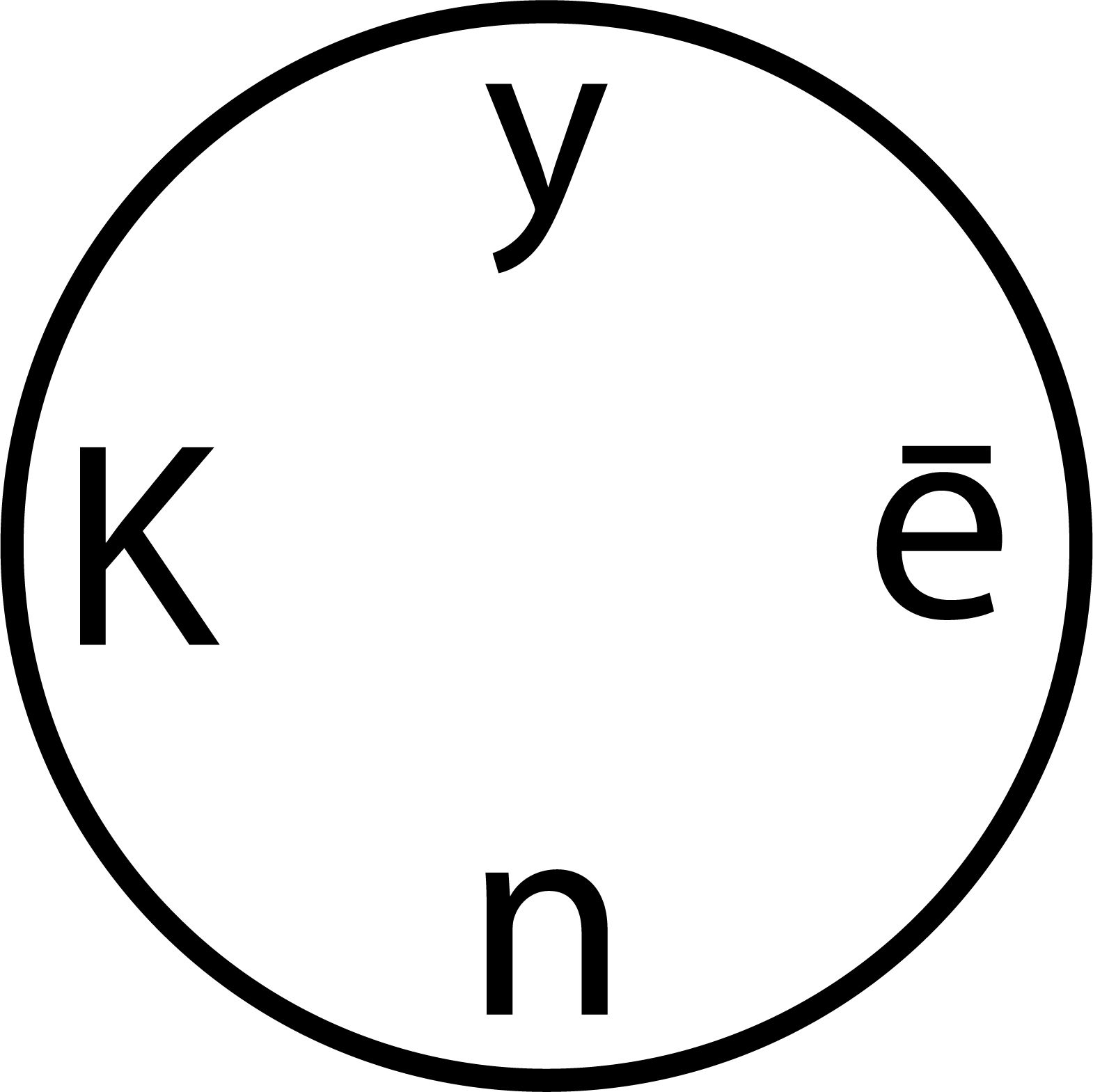Materialities for Possible Futures
Materialities for Possible Futures
Situated biomaterials and material justice: practices from South America in times of ecological crisis
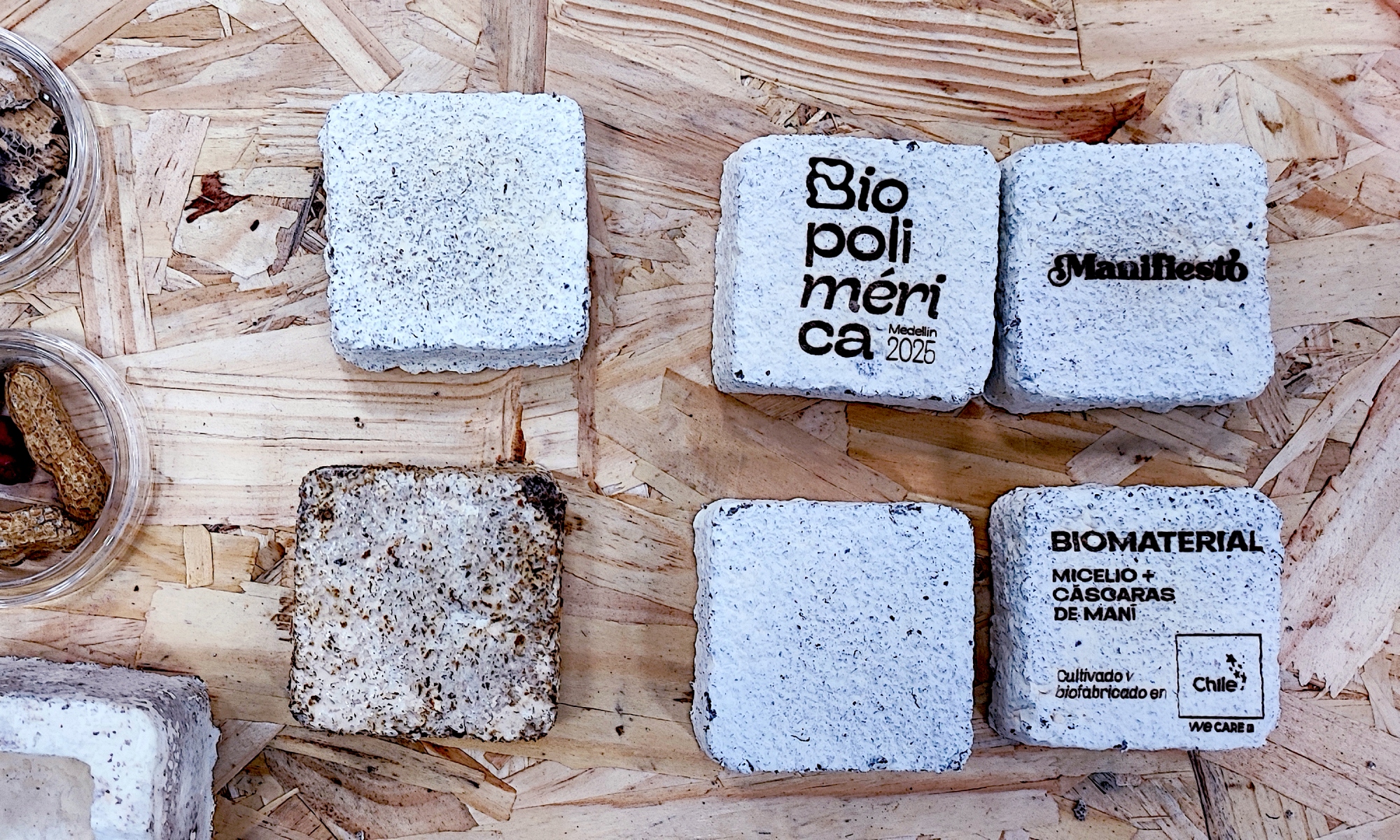
During our visit as part of the Koyne Program to the third edition of Biopolimérica: Latin American Meeting on Biodesign and Biomaterials, held in Medellín, we were delighted to meet María José Besoain and Alejandro Weiss, co-founders of the Biomaterials Laboratory of Valdivia (LABVA) and initiators of Biopolimérica. From this encounter, a dialogue unfolded in which we explored the multiple dimensions of the Latin American biomaterial movement and the possibilities of building a new material culture rooted in the Global South. We discussed the importance of material justice and the need for fair, horizontal dialogue with other regions of the world, including the Nordic countries.
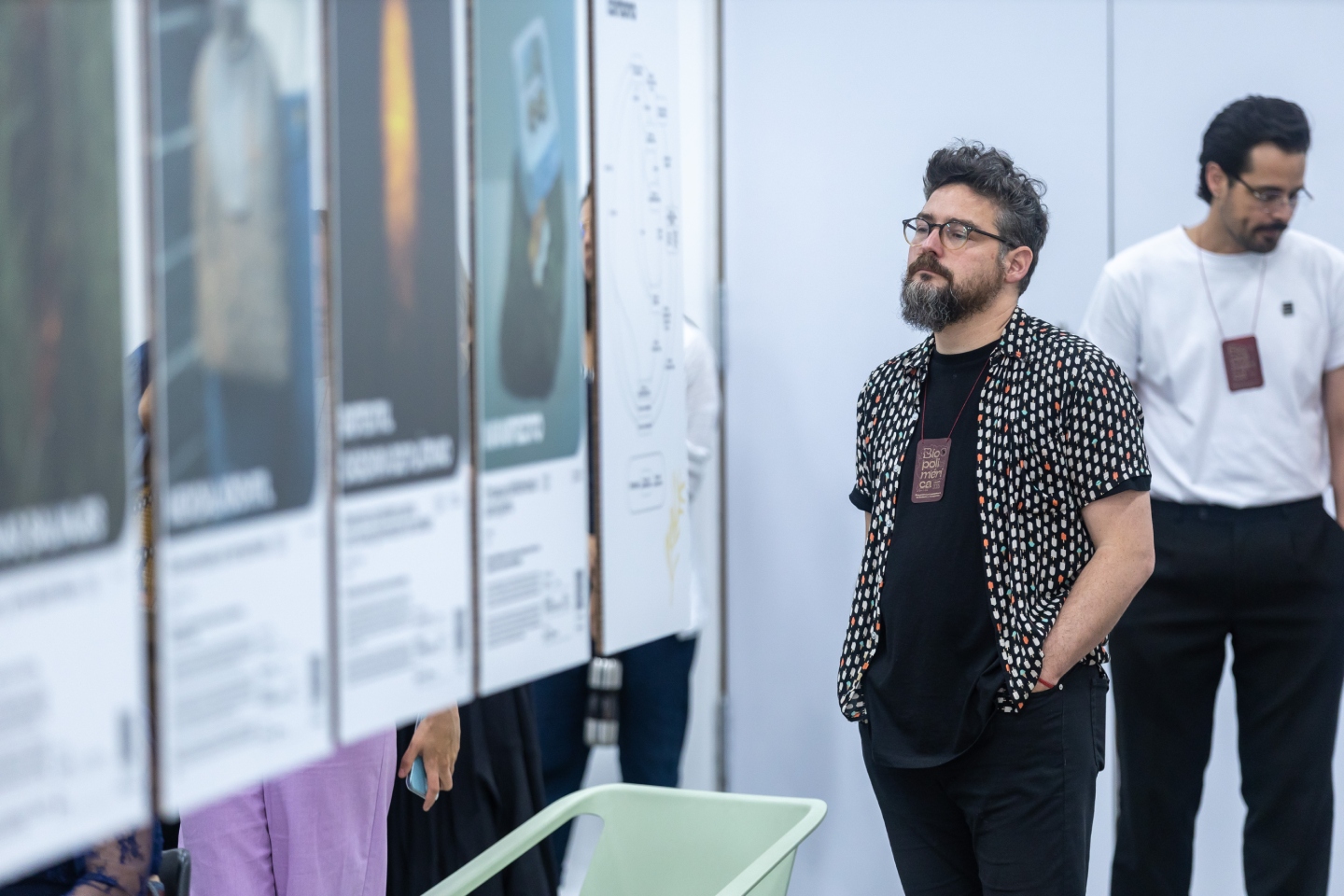
In recent years, LABVA has positioned itself as a key node in shaping a community that understands material practice not only from a technical perspective but also as a political, affective, and territorial gesture. Founded in Valdivia, in southern Chile, the laboratory has cultivated a situated methodology based on the recognition of two complementary forms of abundance: ecosystemic and anthropic. This vision has enabled creative processes that emerge from listening to the territory and making use of its cycles and residues, generating materials that respond to specific contexts, their urgencies, and potentialities.
In its third edition, Biopolimérica addressed the theme “Biodiverse Matter”, highlighting the importance of local diversity to foster material development that is sustainable and grounded in territories. The projects presented showcased the breadth of approaches that shape biomaterial practice in Latin America. We encountered initiatives such as Biology Studio (Mexico), which bridges biological processes and ancestral knowledge; SEED (Mexico), which develops regenerative architectures from earth and natural fibers; Máquinas Salvajes by Jonathan Torres (Costa Rica), experimenting with biodegradable devices at the intersection of art and robotics; and the DLAB at the Universidad San Francisco de Quito (Ecuador), which designs decentralized production models in collaboration with rural communities.
Far from replicating dominant technical discourses, Biopolimérica proposes an ecology of knowledge that reclaims tradition, crafts, interspecies biodesign, and collaborative work as foundations for profound cultural transformation. Its decentralized nature with previous editions in Guadalajara and Valdivia, brings value to knowledge that emerges from regions outside major political centers, challenging both the hegemonies of design and the extractive logics that still dominate global material discourse.
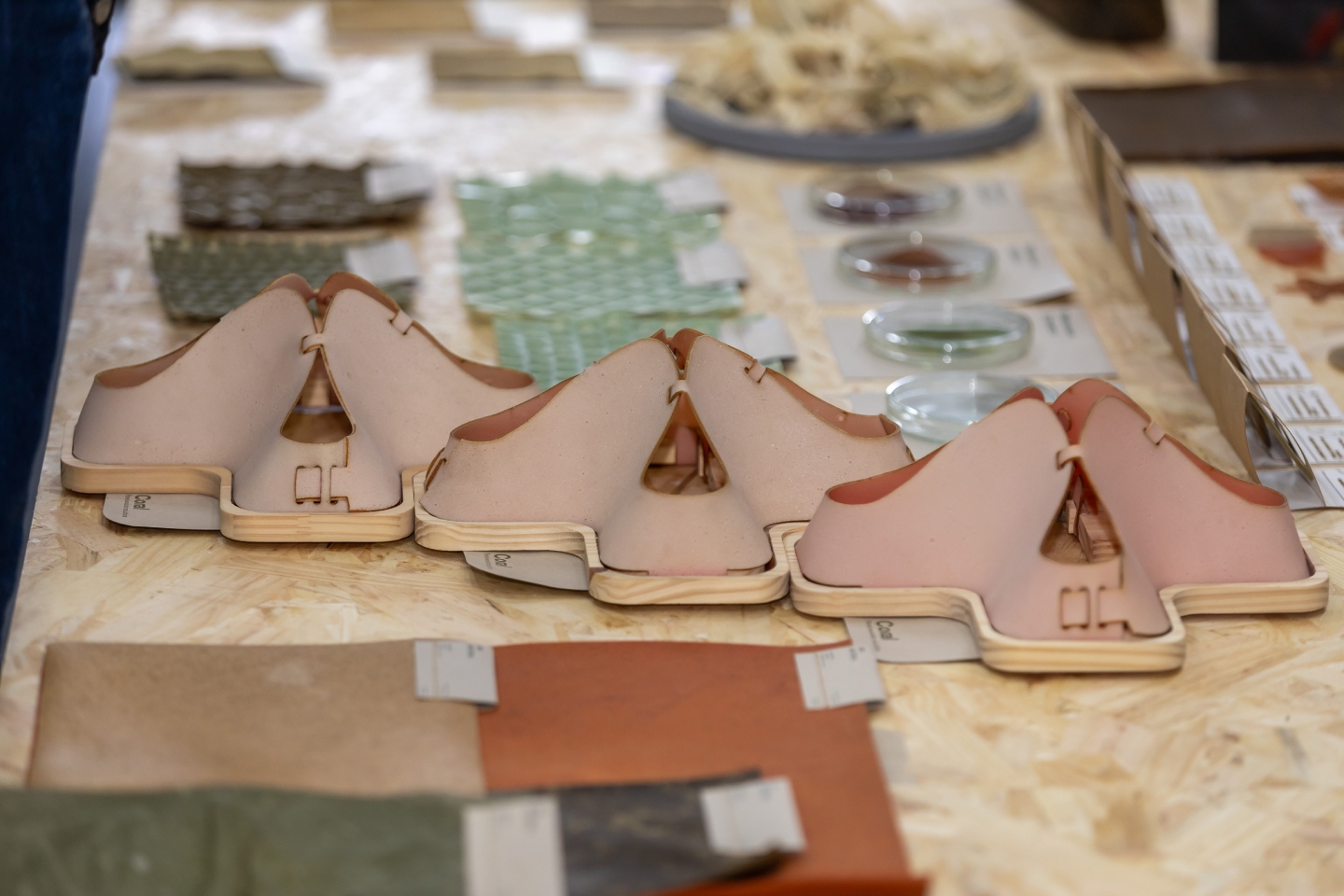
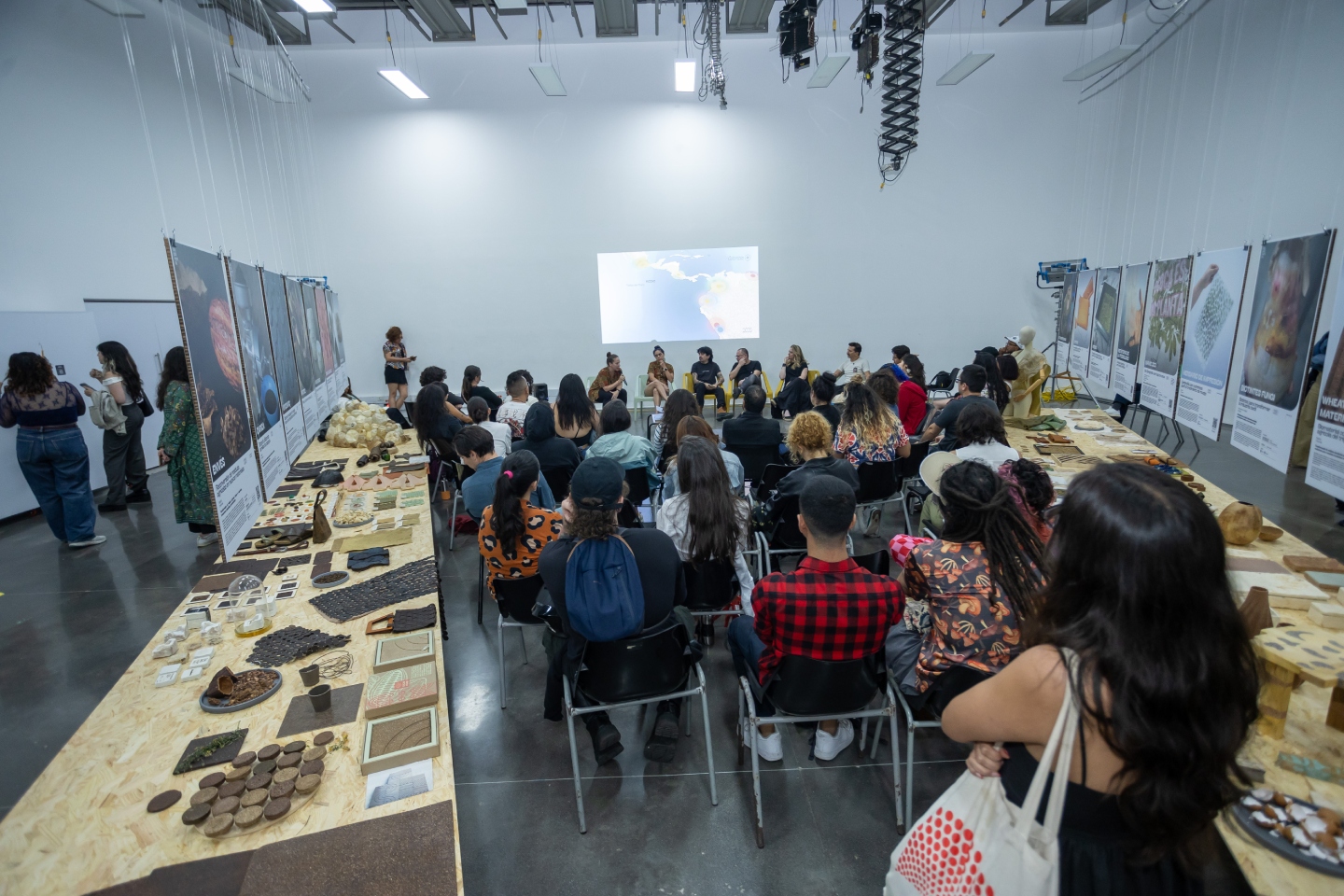
This conversation is part of a broader effort to seek intersections between Global South communities and initiatives in the Nordic countries, recognizing how diverse geographical contexts can contribute complementarily to the search for sustainable, environmentally conscious material alternatives. This collaborative potential lies in the opportunity to build bridges between the South and other regions through a horizontal logic based on respect for context, material memories, and differences.
The dialogue also underscores the need for pedagogical structures: such as residencies, laboratories, and training programs that enable not only the transmission of technical knowledge but also the collective construction of knowledge attuned to territories and their communities.
© text by Renzo Signori & photos by Biopolimerica
